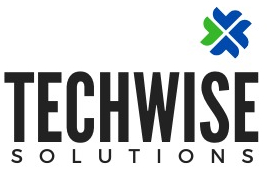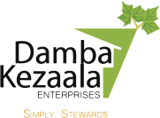About Damba Kezaala Enterprises
Damba Kezaala Enterprises is a dynamic Ugandan company transforming agriculture through farm planning, setup, management, and product marketing services. With a Christ-centered philosophy, the company is committed to offering competent, faithful, and ethical services to agri-entrepreneurs and farmers nationwide.
From registering agribusinesses and developing detailed enterprise plans to managing agro-input procurement and full-scale farm setup, Damba Kezaala supports clients from vision to harvest. Their work combines legal, financial, agricultural, and engineering expertise to ensure profitable, productive, and environmentally sustainable farming ventures.
With a growing client base and multiple concurrent projects, Damba Kezaala needed a more streamlined, scalable system to manage operations — and that’s where ERPNext came in.
Challenges Before ERPNext Implementation
As the company expanded, managing workflows and business processes manually became overwhelming. Key challenges included:
1. Project Management Complexity
- No centralized system for managing ongoing client projects (e.g., farm setups, business planning, input deliveries).
- Difficulty assigning and tracking project milestones across departments (agriculture, architecture, plumbing, auditing, etc.).
- Lack of visibility into project progress for both internal teams and clients.
2. Office & Financial Administration
- Manual handling of invoices, receipts, and client payments led to errors and inefficiencies.
- Limited ability to track which clients had paid, what services were billed, and pending payments.
- Delays in generating quotations and financial documents for services (e.g., planning fees, input procurement, setup charges).
3. Procurement & Delivery Management
- Tracking input procurement (e.g., seeds, tools, irrigation kits) was difficult without a centralized system.
- Uncertainty around delivery timelines and confirmation of received items.
- Lack of a clear supplier database and purchase history.
4. Human Resource Coordination (Implied)
- Coordination of multidisciplinary teams (IT, M&E, auditing, laborers) across many projects was complex.
- No unified employee database or tracking system for staff assignments and salaries during farm setup.
5. Document Control & Service Planning
- Business plans and architectural designs were scattered in different folders or systems.
- No structured system to manage and retrieve past proposals, reports, or soil test data efficiently.
ERPNext Implementation & Benefits
With ERPNext, Damba Kezaala Enterprises adopted a modern, integrated platform to manage its operations more efficiently across departments.
Project Management Module
- Created and managed structured farm setup and planning projects with milestones, tasks, and deadlines.
- Assigned teams from different departments (architecture, IT, agriculture) to projects with clear accountability.
- Tracked project completion stages and shared progress reports with clients.
Accounting & Sales Modules
- Generated and managed professional quotations, invoices, and receipts for services like planning and setup.
- Tracked payments received and outstanding balances by client.
- Simplified tax tracking and financial reporting with automated ledger entries.
Procurement Module
- Managed supplier information, procurement requests, and deliveries for agro-inputs.
- Verified delivered inputs and logged expenses per project or client.
- Ensured transparency and quality control in purchases, aligned with World Bank guidelines.
Human Resource Module
- Managed staff roles, assignments, and salaries for each project.
- Tracked labor allocations during the one-month farm setup period.
- Streamlined onboarding and team coordination.
Document Management (Core Feature)
- Stored project documents (business plans, soil tests, architectural designs) centrally.
- Enabled version tracking and easier access to past client deliverables.
CRM (Client Management)
- Tracked potential and ongoing clients, their service history, and follow-up status.
- Improved relationship management and future service upselling.
Impact of ERPNext on Damba Kezaala Enterprises
The transformation brought by ERPNext was both operational and strategic:
1. Improved Project Delivery
- All farm setup and planning projects were managed with clear timelines and visibility.
- Internal coordination between teams significantly improved.
2. Better Financial Control
- Invoices and receipts are now generated quickly and accurately.
- The team can monitor service payments, track overdue accounts, and improve cash flow.
3. Streamlined Procurement
- Inputs are tracked from request to delivery, reducing delays and ensuring quality control.
- Supplier data is now organized, helping with accountability and efficiency.
4. Stronger Team Coordination
- The HR module helped assign staff to specific projects and track work done during each setup.
- Labor costs are now automatically calculated and budgeted per project.
5. Enhanced Professionalism
- Clients now receive organized, branded documents, enhancing Damba Kezaala’s image.
- Operational transparency has increased trust and improved client satisfaction.
Conclusion
By implementing ERPNext, Damba Kezaala Enterprises successfully digitized and streamlined its core operations, from complex farm setup projects to procurement, billing, and team management. The system provided clarity, structure, and control—empowering the business to serve more clients efficiently while maintaining its values of faith, integrity, and excellence.
With ERPNext, Damba Kezaala is no longer just a farm setup partner—it is a digitally empowered agribusiness enabler guiding farmers toward sustainable and profitable ventures.
From Vision to Harvest, Now Digitally Powered.




